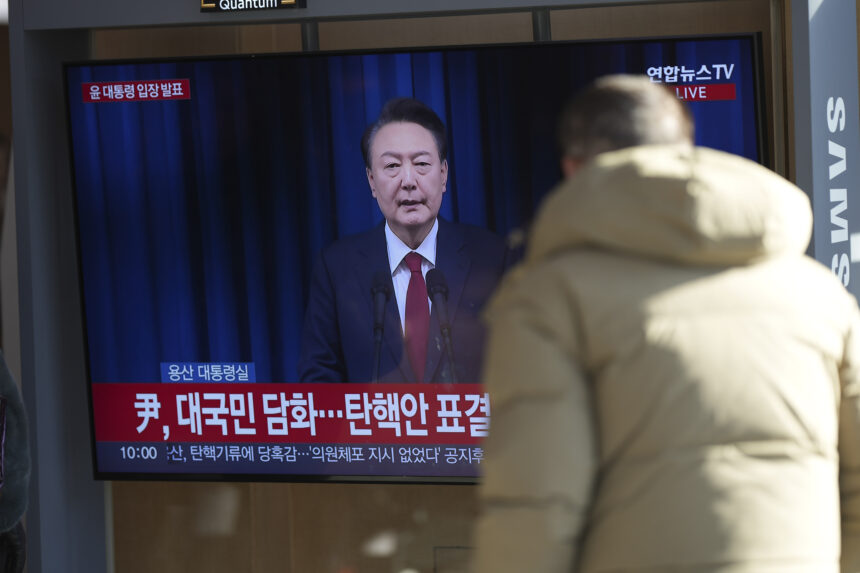South Korea President Yoon Suk Yeol has issued a public apology for causing public alarm with his recent declaration of martial law. In a televised address on Saturday morning, Yoon expressed regret for his actions and assured the public that he would not attempt to impose martial law again.
The apology comes ahead of a parliamentary vote on a motion to impeach President Yoon. The motion, submitted by opposition lawmakers, has the potential to remove Yoon from office if it garners the necessary two-thirds majority in the National Assembly.
Yoon’s own party, the People Power Party, has shown signs of division, with some members calling for the suspension of Yoon’s constitutional powers. These members have criticized Yoon as unfit to lead and have raised concerns about his potential to take extreme actions, such as another attempt to impose martial law.
The impeachment process would require support from 200 out of 300 members of the National Assembly. The opposition parties have a combined total of 192 seats, meaning they would need at least eight votes from Yoon’s party to secure the impeachment.
The recent turmoil in South Korean politics has raised concerns among key diplomatic partners, including Japan and the United States. The international community is closely monitoring the situation as one of Asia’s strongest democracies faces a political crisis that could lead to the removal of its leader.
Opposition lawmakers have accused Yoon of attempting a self-coup through his martial law declaration and have drafted the impeachment motion on charges of rebellion.
In the midst of the political chaos, President Yoon’s party has decided to oppose the impeachment motion, despite calls for his powers to be suspended. Party leader Han Dong-hun has emphasized the need to swiftly curb Yoon’s authority, citing potential dangers to the country and its citizens.
Allegations have surfaced that during the brief period of martial law, Yoon ordered the detention of key politicians on charges of “anti-state activities.” The Defense Ministry has taken action against officials allegedly involved in enforcing martial law, including the suspension of the defense counterintelligence commander and other military commanders.
The unfolding events in South Korea have put the country’s political stability at risk and have raised questions about the future of Yoon’s presidency. As the National Assembly prepares to vote on the motion to impeach President Yoon, the outcome remains uncertain, but the implications for South Korea’s democratic institutions are significant.







